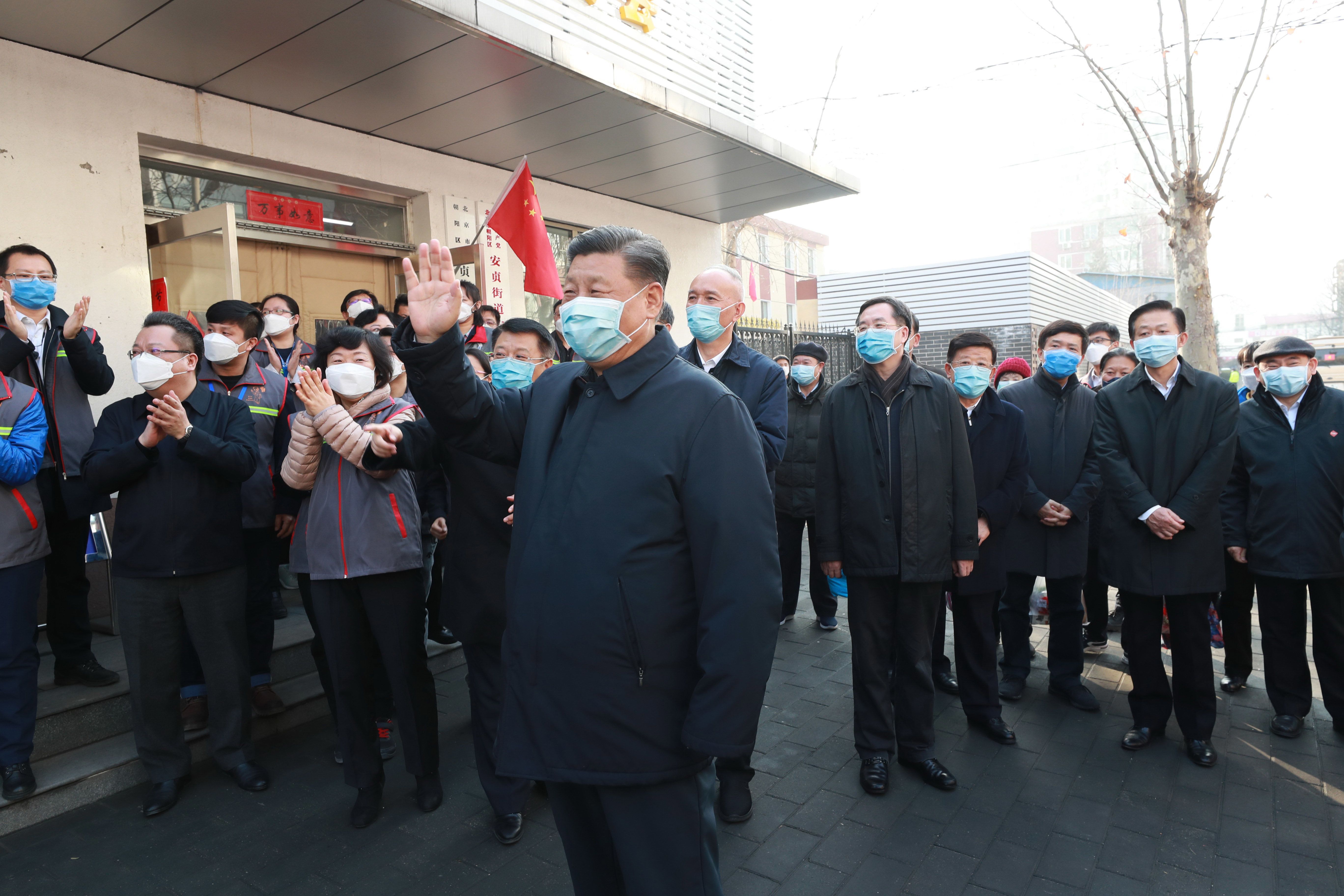February 11, 2020
China's party line on public health – China's President Xi Jinping appears to have decided that his coronavirus communications strategy hasn't worked. On Monday, after an extended absence from political centerstage, Xi appeared in public, wearing a surgical mask, to have his temperature taken as he reviewed a coronavirus health facility in Beijing. This new attempt to reassure the public that China's top man is personally directing the crisis came right as several senior party officials in Wuhan were sacked. There are also new surveillance measures: the state has launched an app that tells users whether they've been near a person suspected of having the virus. Xi, and those around him, are grappling with a problem familiar to authoritarian systems in moments of crisis: a party that holds a monopoly over political power also has a monopoly on responsibility when things go wrong. We're watching to see how these new messages play with an anxious Chinese public.
Watching people watching Putin watch them – A prankster in Moscow last week hung a gigantic portrait of Putin in his building's elevator and secretly filmed his neighbors' reactions. The result is superb. No one is thrilled. Almost all of the responses, ranging from incredulous to amused to overtly annoyed, boil down to: "what the f**k?". Watch it all the way through – the last guy's reaction is probably the best of the bunch. It's a great little snippet of how ordinary folks regard Putin in their daily lives – 70% approval rating or not.
Salvini in the dock – The Italian Senate will decide tomorrow whether far-right firebrand politician Matteo Salvini should face prosecution for refusing, when he was Interior Minister, to allow a coast guard ship that rescued 131 migrants in the Mediterranean to dock at an Italian port. Salvini, who heads the far-right anti-immigration Lega party, skirted prosecution last year when the senate gave him parliamentary immunity, but they'll vote again on Wednesday. Salvini says he sees potential criminal proceeding as "medals for having defended Italy's borders." But if the case moves ahead and Salvini is found guilty, he faces up to 15-years in prison. Salvini is a shrewd and very popular politician, but is he really willing to risk years behind bars?
More For You
- YouTube
It's one of the few sources Americans across the political spectrum still rely on.
Most Popular
Think you know what's going on around the world? Here's your chance to prove it.
America’s new National Security Strategy confirms what Europeans have feared for months: Washington now sees a strong, unified European Union as a problem to be solved, not an ally to be supported.
Sports inspire greatness, determination, and resilience — both on and off the field. Bank of America is proud to celebrate the achievements of and uplift communities through the power of sports. Learn more about how Bank of America supports athletes in life and in the game.
© 2025 GZERO Media. All Rights Reserved | A Eurasia Group media company.
